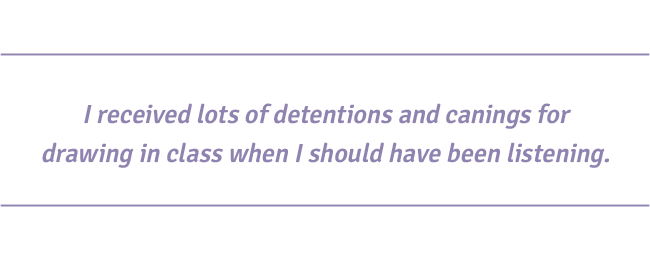We caught up with Bill on his ‘Managing the Challenging Class’ course earlier this term to seek his insights on our teachers’ most common behavioural issues.
Apart from doing Osiris Educational courses, how else are you currently involved with education this year?
I spent a fair bit of my year back in Australia working in schools which are very challenging. I’ll team teach with a colleague in that classroom, trying to give them the possibility of having a trusted colleague to see things that they see, feel and experience every day in those classes.
Can you tell us how to get a class to be
quiet at the start of a lesson?
The big challenge for the teacher is to create a sense of calm and focus so they can begin. Most teachers will say things like ‘can you please be quiet?’ rather than picking on one specific action and directing the group to re-address their behaviour.
Generally a question is not helpful. You are not asking their permission for them to be quiet or to face the front. When we are trying to settle a class it’s far better to use calm, clear, directional language – something like ‘settle down everyone’ should see better results.
What is the theory behind this technique?
The teacher is very conscious of being calm and positive, while still cueing the class to settle, look and listen. Using calm, clear language can be easier said than done. This is the challenge when settling a class.

How would you deal with lateness?
I had three kids coming late to a class: [they said] “Who are you?†The teacher and I acknowledge they are late, but we welcome them with “I notice your late, what are your first names?†and they gave me their first names. I said: “My name’s Bill Rogers, we’ll have a chat later, there’s some spare seats along the window there, thanks fellas.â€
We didn’t stare them into the seats by the window. As they took their seats there was a bit of grandstanding and all that sort of stuff, but less stuff, I believe, than if I had challenged them.
What is tactical ignoring?
It’s about establishing relationships and leadership. We don’t talk too much about controlling kids because I can not control kids, but we do talk about control of situations. Tactical ignoring is one small but essential part of the way you relate to young people. We ignore the unwanted, distracting behaviour that often occurs in response to a direction. We tactically ignore because it’s not the primary issue at that point. If a teacher is effective at doing that, the rest of the class quickly cue in, they know that the teacher is in control.
We have to say, we and many of our teachers love your drawings. How do you incorporate them into your training days?
Every case study that I try to role play in front of the group will be supported by a picture of some kind.
What does your course with Osiris cover?
The course with Osiris is going to look at what kind of support can realistically be given, especially in those critical first meetings. We talk about giving time out support when children are so challenging that they effectively hold the class to ransom. We will look at: how other colleagues in the team, including senior colleagues, can give immediate support when the kid is effectively holding the class to ransom and how we can then follow up with that student later on in the day to do some rebuilding. SR


